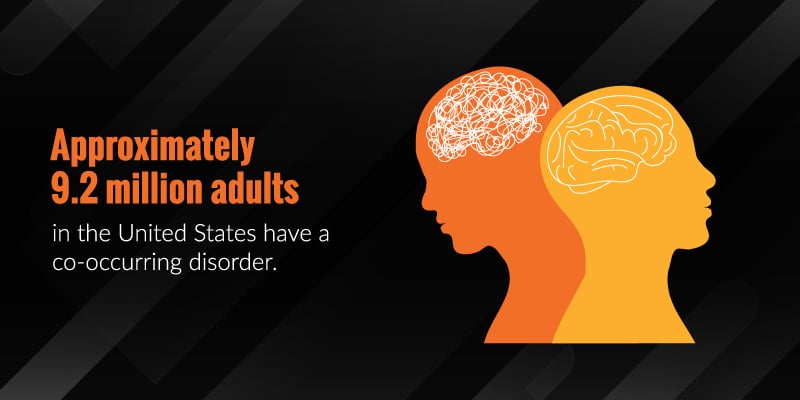They say it’s the most wonderful time of the year, but for people in recovery or struggling from drug and alcohol addiction, the holidays can be a hard time to stay sober and healthy. The typical holiday season is filled with stressors from overwhelm, financial stress, unhealthy eating, and emotional strain. The 2020 holiday season sees us in the midst of a pandemic, increasing COVID-19 cases, prolonged social distancing and isolation, financial uncertainty, and heightened emotions. The result? Holiday stress is exacerbated making this year a particularly hard time to prevent pandemic holiday relapse and substance misuse. Sarah Zubrin, chief clinical officer at Mile High Recovery Center, says that while we don’t have nationwide data that captures the full impact of COVID-19 and its related effects on addiction, recovery, and relapse, many indicators show troubling trends associated with it.
- From January to April 2020, Colorado has experienced a 35% increase in overdose deaths from the same time period the year prior, according to the Colorado Department of Public Health and Environment.
- In April 2020 alone, there was a 61% increase in overdose death. According to the CDPHE, this suggests an intersection between two public health crises – COVID-19 and drug overdoses.
- 13.3% of respondents of a June study by the Centers for Disease Control and Prevention reported starting or increasing substance use (including drugs and alcohol) since the onset of the pandemic.
Zubrin says this data is proof of the serious psychological and emotional impact of the Coronavirus pandemic for Coloradans and Americans from all walks of life. “Add into this already troubling mix the additional stress of the holidays and people are seriously struggling,” she states. Yet Zubrin says the hope is not lost, there are many things you can do to help you navigate through the holidays and keep your sobriety intact. Here are some helpful tips to help you get through:
1. Be Aware of Triggers
You need to be aware of the people, places, and things that could trigger you and know how to manage them. Even though most of our holiday activities will be distanced this year, it doesn’t mean there won’t be triggers.
Some simple tips for defending yourself against triggers include:
- Avoid people who are using and places where drugs and/or alcohol are present.
- Limit your exposure to stressful situations and people.
- Leave, log off, or hang up if you begin to feel uncomfortable
- Set and maintain your own healthy boundaries.
- Don’t suppress your feelings, but do find healthy ways to cope with anger, depression, guilt, loneliness, and stress.
- Be accepting of yourself and others. Recognize the impact COVID-19 has on all of us, leaving many of us on edge
- Build your resilience with the roadmap by the American Psychological Association.
- Work your program if you have one, attend more meetings if you need to, connect with your community of support.
By taking care of yourself mentally and physically, you can defend yourself against these triggers.
2. Don’t Feed Your Fears
Fear is a drug that is powerful, readily available, and sustainable over a long period of time. You can fear the world, you can fear the situation, you can fear other people, you can fear running out of toilet paper, and none of these will appear to directly impact you. “It is the one drug that won’t directly kill us, but it will drive us to the brink,” Zubrin says. “Fear is the finger on the trigger every single time we see someone relapse. Fear of loneliness, fear of social isolation. Without fear, we would have no addicts.” How do you stop feeding your fears? Don’t let change and uncertainty cause you fear. Don’t let your own mind amplify your fears. Don’t let society impose fear on you. Don’t isolate yourself. Surround yourself with positive and supportive people.
3. Know You’re Not Alone
Loneliness is a state of mind not a place of existence. So no matter where you are if you can connect to other human beings on any plane you can combat the loneliness that resides within you. Zubrin says the pitfall is that early recovery and addiction involve feelings of loneliness. Couple that with social distancing and the disconnect many people feel during the holidays, and you have a lot of people feeling especially lonely right now. “Although we cannot participate in the human touch, we can do other things, like embracing our own spirit and share that with others,” Zubrin explains. “We need to avoid social isolation even without proximity to another human being.” You can utilize all the technology at your fingertips and pick up the phone, call someone, text someone, Facetime, or Zoom, however, you want to do it. By reaching out and banding together with your community you can avoid loneliness even in times of social distance.
4. Rely on Your Support Systems
Having a strong support system is a very important part of recovery. Plan your support by knowing who really cares about you and your sobriety, such as family, friends, support groups, sponsors, or others in recovery. Reach out to your support system on a call, text, or through social media if you feel the urge to drink or use. Don’t try to do it all on your own. Zubrin explains one of the biggest struggles in recovery and addiction is that people don’t like to ask for help. “It’s kind of the American way to pull yourself up by the bootstraps mentally and emotionally and it doesn’t work.” The holidays are about being there for one another. Remember, your support group is there for you.
5. Take Good Care of Yourself
With exacerbated stress levels due to the pandemic and holiday season, it’s easier now, more than ever, to put self-care on the back burner. Get enough sleep. Take care of your mental health. Get exercise. Eat healthily. Stay true to what helps you reinforce your sobriety. By taking care of yourself you will feel better, have more energy to plan and handle situations, quell compulsive tendencies, and help prevent pandemic holiday relapse. Zubrin notes that feeling good about yourself is a critical part of anyone’s self-care, especially someone in recovery or struggling with addiction.
How Mile High Recovery Center Can Help
Mile High Recovery Center helps clients heal and create a foundation for long-term recovery with individualized, thoughtful, and supportive treatment plans geared toward every client’s specific needs. To find out more about services offered by Mile High Recovery Center, Denver rehab for addiction, contact us online or call 866-920-0719, and let us help you get started on the road to long-term recovery. 
Download this infographic featuring pandemic holiday relapse prevention tips to print or share.










